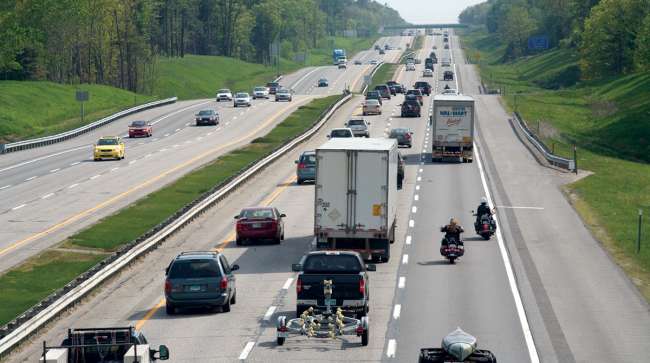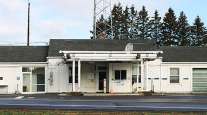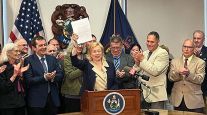Bangor (Maine) Daily News
Maine Panel Recommends Hiking Road Funding

[Stay on top of transportation news: Get TTNews in your inbox.]
AUGUSTA, Maine — A commission tasked with solving Maine’s transportation funding shortfall will recommend an immediate infusion of between $20 million and $60 million while punting a range of possible solutions to the next Legislature.
The blue-ribbon commission decided on March 3 to suggest the Legislature consider any funding solutions be built on a 50-60% increase in general fund revenue and the rest from new revenues, which could include measures such as a gas tax increase or higher fees for electric vehicles. It recommends the increase be built up to over the next three to four years.
The decision means lawmakers avoid a tricky decision of deciding how the problem will be fixed for now. Commission members agreed a compromise would be nearly impossible with the end of the legislative session approaching in April. The recommendation will go to the Legislature’s Transportation Committee.
The issue of how to fix the funding gap has been prominent this session, with Gov. Janet Mills urging lawmakers to “fix the damn roads” during her State of the State address in January. Republicans became frustrated when the Democratic governor then introduced a supplemental budget package that included a one-time expenditure of $10 million for transportation.
The commission did not specify whether the infusion it suggests would be on top of that $10 million or include it. Ultimately, members wanted to show some progress had been made.
“I think everybody wishes we would have been able to find the magic bullet to fix this problem, but we didn’t get into this hole overnight, and it’s going to take a while to dig out of it,” said Sen. Brad Farrin (R-Norridgewock).
The commission has struggled for months to gain consensus on a solution despite getting an extended deadline. It was able to agree the state should come up with an additional $160 million to narrow the shortfall — estimated at $232 million assumed $100 million in annual borrowing — but divisions on how to get there have fallen mostly on party lines. There also was support to increase general fund spending and reduce reliance on bonding.
Compare each of the presidential candidates' plans for addressing America's infrastructure needs. See our Candidate Infrastructure Tracker.
But whether a gas tax increase should be part of the solution divided the group for months. The idea was supported by trucking, construction and alternative transportation industry members and municipality and aging interest groups, and got buy-in from Democrats on the commission. The state tax rate hasn’t increased since 2011.
Republicans generally have resisted the idea and said Mills left lawmakers “no options” but to increase taxes and bonding in a February press release. They floated using the tax revenue from vehicle sales — a $230 million funding source in the annual state budget — to plug the gap. That didn’t go over well with Mills and members of the Legislature’s budget committee.
A gas tax increase is not popular with all Democrats. Senate President Troy Jackson (D-Allagash) opposed it last month on Portland radio station WGAN, saying it’s something “I’m not real interested in.”
The issue looked like it would prevent the commission from making a recommendation at all, after a tense meeting last month. But Sen. Matthew Pouliot (R-Augusta) — who has been vocal about using existing revenues over any gas tax increase — and Rep. Nathan Wadsworth (R-Hiram) ultimately supported a split funding solution, although they both preferred a heavier contribution from the general fund.
Pouliot said he needed assurance that the state would reduce its level of bonding. Wadsworth said he was against a gas tax outright but would support other measures such as upping the highway toll rate during summer months.
But while commission members agreed the state should reduce its reliance on bonding, Maine Department of Transportation Commissioner Bruce Van Note said it wouldn’t be possible in the immediate future unless other funding is approved.
Want more news? Listen to today's daily briefing:
Distributed by Tribune Content Agency, LLC




